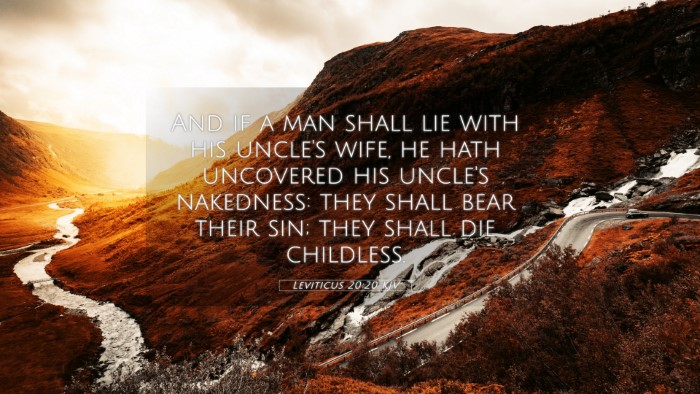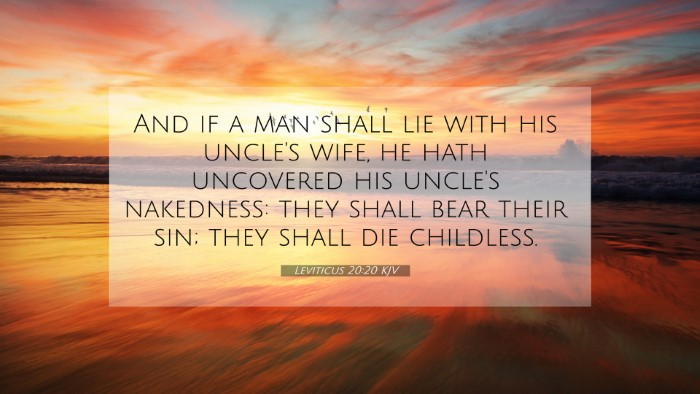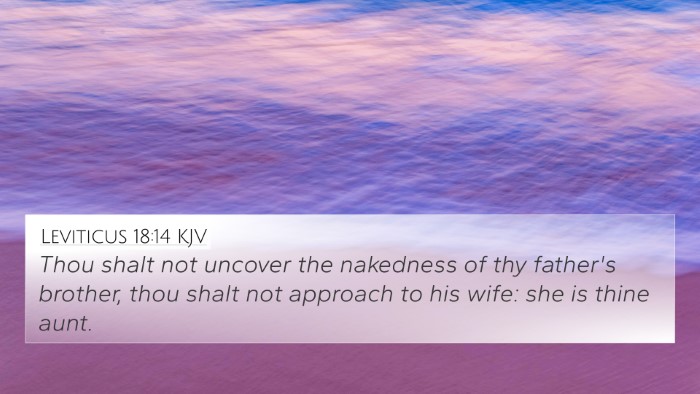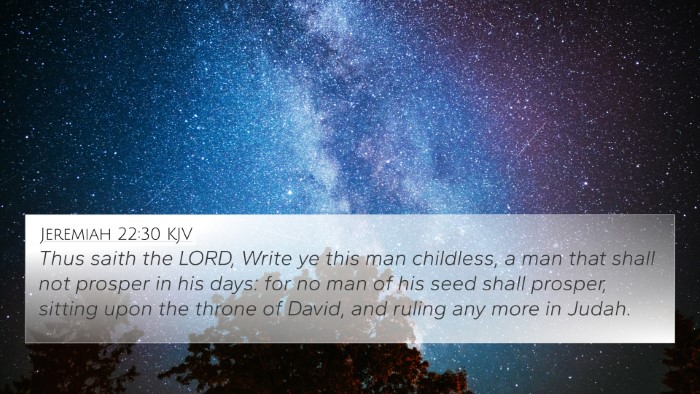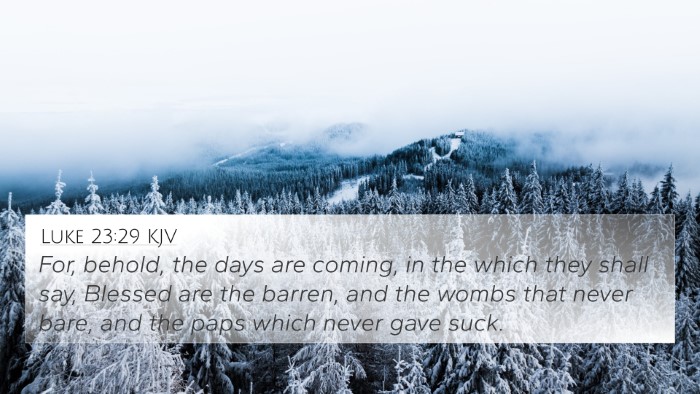Understanding Leviticus 20:20
Leviticus 20:20 states: "And if a man shall lie with his uncle's wife, he hath uncovered his uncle's nakedness: they shall bear their sin; they shall die childless." This verse emphasizes the seriousness of sexual relations within certain familial boundaries, illustrating the broader theme of holiness and purity within the Scriptures.
Summary of Meanings from Public Domain Commentaries
This analysis combines insights from respected public domain commentaries including those by Matthew Henry, Albert Barnes, and Adam Clarke, providing a comprehensive understanding of the verse.
Matthew Henry's Commentary
Matthew Henry emphasizes the moral implications of this law, stating that the act is not just a physical violation but also a breach of spiritual and familial integrity. He notes that such actions lead to serious consequences, both in societal norms and within the covenant community.
Albert Barnes' Commentary
Albert Barnes provides a contextual interpretation, explaining that these laws served to protect the sanctity of family relationships and to maintain the purity of the Israelite community. He highlights the severity of the punishment, suggesting that it underscores the seriousness with which God views sexual immorality.
Adam Clarke's Commentary
Adam Clarke focuses on the implications of being 'childless,' suggesting that this not only refers to physical offspring but also to spiritual legacy. He argues that God’s laws create a framework for family and community life that promotes order and righteousness.
Key Themes and Connections
Leviticus 20:20 is part of a larger narrative concerning moral laws and the concept of holiness. It highlights several themes:
- Holiness and Separation: The Israelites were called to be a holy people, set apart from other nations.
- Family Integrity: The verse addresses the sanctity of family relations.
- Punishment for Sin: The seriousness of sin is met with severe consequences.
Cross-References
Several other Bible verses resonate with the themes of Leviticus 20:20:
- Leviticus 18:6-18: Discusses forbidden relationships, reinforcing the need for boundaries.
- 1 Corinthians 5:1: Addresses sexual immorality within the church community.
- Hebrews 13:4: Honors marriage and calls for sexual purity.
- Deuteronomy 22:22: Elaborates on laws against adultery.
- Romans 1:26-27: Talks about the consequences of abandoning natural relations.
- Galatians 6:7: Speaks to the principle of reaping what one sows.
- Exodus 20:14: The commandment against adultery reinforces the moral law.
Thematic Bible Verse Connections
This verse is connected intricately to the larger biblical narrative. The prohibitions found in Leviticus carry forward into the New Testament where Jesus expands on the understanding of the moral law.
Tools for Bible Cross-Referencing
For deeper study, consider utilizing tools and guides such as:
- Bible Concordance: Useful for finding related scripture quickly.
- Bible Cross-Reference Guide: Helps identify connections between verses.
- Cross-Referencing Bible Study Methods: Techniques to study related themes.
- Bible Reference Resources: Comprehensive materials for in-depth studies.
Conclusion
Leviticus 20:20 serves as a stark reminder of the biblical principles surrounding familial relationships and sexual morality. By understanding this verse and its connections, we gain insight into the holistic message of Scripture concerning holiness and ethical living.
FAQ
What Verses Are Related to Leviticus 20:20?
Related verses include Leviticus 18:6-18, 1 Corinthians 5:1, and Hebrews 13:4.
How Do Leviticus 20:20 and 1 Corinthians 5:1 Connect?
Both verses address the issue of sexual immorality and the implications it has on community integrity and personal holiness.

